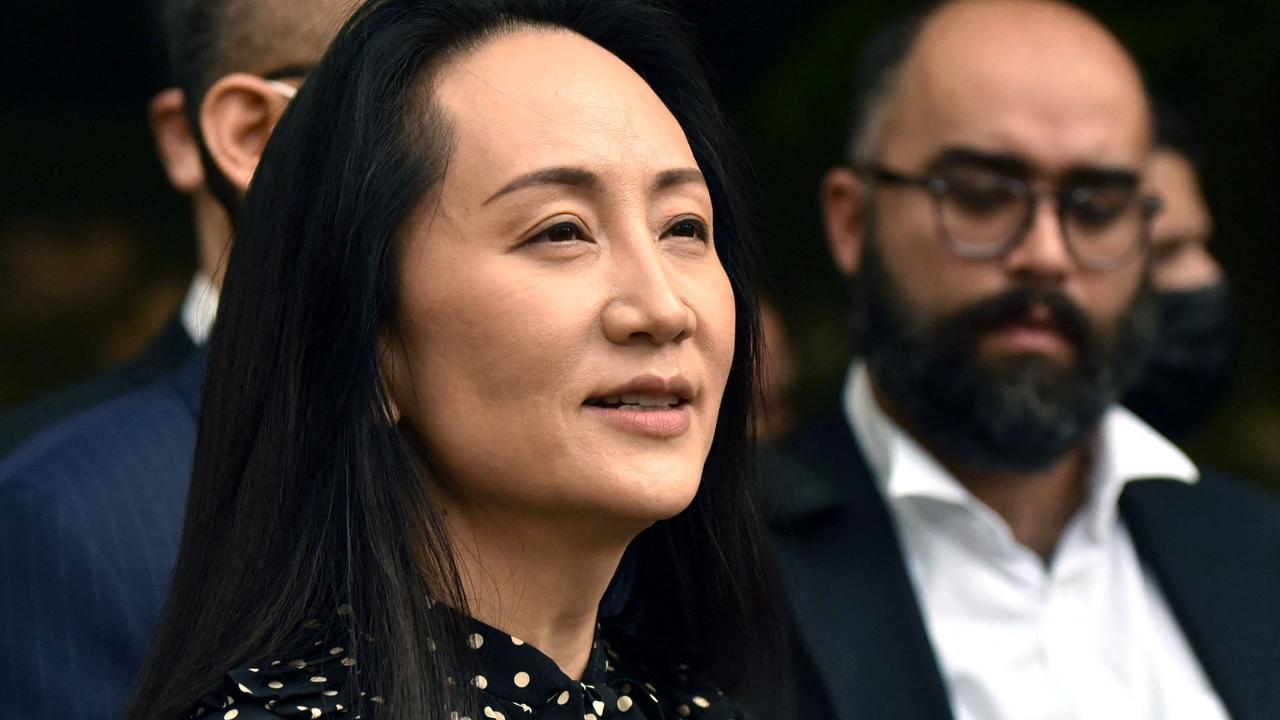Huawei boss freed in major deal
Meng Wanzhou, the daughter of billionaire Huawei founder Meng Wanzhou, has returned to China, three years after her arrest in Canada.
The “Princess of Huawei” has flown home to China after three years of house arrest in Canada.
The arrest of Meng Wanzhou in Canada — at the behest of the United States — sparked a major dispute between Washington and Beijing.
China’s subsequent arrest of Canadian nationals dubbed the “two Michaels” was widely seen as retaliation for the arrest of Ms Meng.
Huawei executive Meng Wanzhou was freed Friday following an agreement with the US Justice Department to suspend the fraud charges against her that had poisoned Beijing’s relations with Washington and Ottawa.
Ms Meng — the 49-year-old daughter of Ren Zhengfei, the billionaire founder of world-leading telecoms equipment supplier Huawei — was granted release in a Vancouver court hearing.
The hearing came hours after US prosecutors announced an agreement in New York under which charges are to be suspended and eventually dropped.
She immediately returned home to China — for the first time since her arrest in Vancouver’s international airport on December 1, 2018.
Prime Minister Justin Trudeau today announced that two Canadian businessman, Michael Spavor and former diplomat Michael Kovrig, were on a plane home to Canada.
They were arrested and imprisoned on espionage charges in the days after Ms Meng was detained. Their arrest in China was branded by Western critics as “hostage diplomacy.”
“I would like to express my sincere gratitude to the Chinese embassy in Canada for their constant support,” Ms Meng told reporters after the hearing in Vancouver.
“Over the past three years, my life has been turned upside down. It was a disruptive time for me as a mother, wife and a company executive,” she said.
“But I believe every cloud has a silver lining. It really was an invaluable experience in my life,” she said.
“The saying goes, the greater the difficulty, the greater the growth.”
Princess of Huawei
The resolution of the case removes a deep thorn in the relationship between Beijing, Washington and Ottawa, with China accusing the United States of a political attack on one of the Asian giant’s technology titans.
Beijing meanwhile accused Ottawa of doing Washington’s bidding by arresting and holding Ms Meng, who was known inside Huawei as the “princess” of the company and its possible future leader.
Following her 2018 arrest, she was confined to a palatial mansion with an ankle bracelet for monitoring her movements in the western Canadian city, as she fought extradition to the United States.
The US had accused her of fraud against HSBC bank and wire fraud, saying she tried to hide violations of US sanctions on Iran by Huawei affiliate Skycom.
It said Huawei routed Skycom-linked payments through the US banking system, tying it to the sanctions violations, and said that Meng had served on the Skycom board.
But on Friday, US prosecutors settled for Ms Meng agreeing to a statement of facts in the case.
In exchange, they agreed to defer the charges — which carried the risk of up to 30 years in prison — until December 1, 2022, and then drop them if Ms Meng abides by the terms of the agreement.
“In entering into the deferred prosecution agreement, (Ms) Meng has taken responsibility for her principal role in perpetrating a scheme to defraud a global financial institution,” acting US Attorney Nicole Boeckmann said in a statement.
“(Ms) Meng’s admissions are evidence of a consistent pattern of deception to violate US law,” said FBI Assistant Director Alan Kohler.
US campaign against Huawei
The charges and Ms Meng’s arrest were enmeshed in a broader campaign against Huawei, a private firm that Washington says is closely tied to the Chinese government and People’s Liberation Army.
US officials say Huawei’s phones, routers and switching equipment, used widely around the world, offer Chinese intelligence a potent backdoor into global communications.
US government agencies are banned from buying Huawei equipment, and Washington has pressured allies to follow suit.
But Beijing said the US attack is driven by politics and a desire to harm Chinese economic power.
Australia has also been involved in a major dispute with Huawei.
In 2018, then-Prime Minister Malcolm Turnbull banned Huawei from Australia’s 5G rollout.
For all the latest Technology News Click Here

